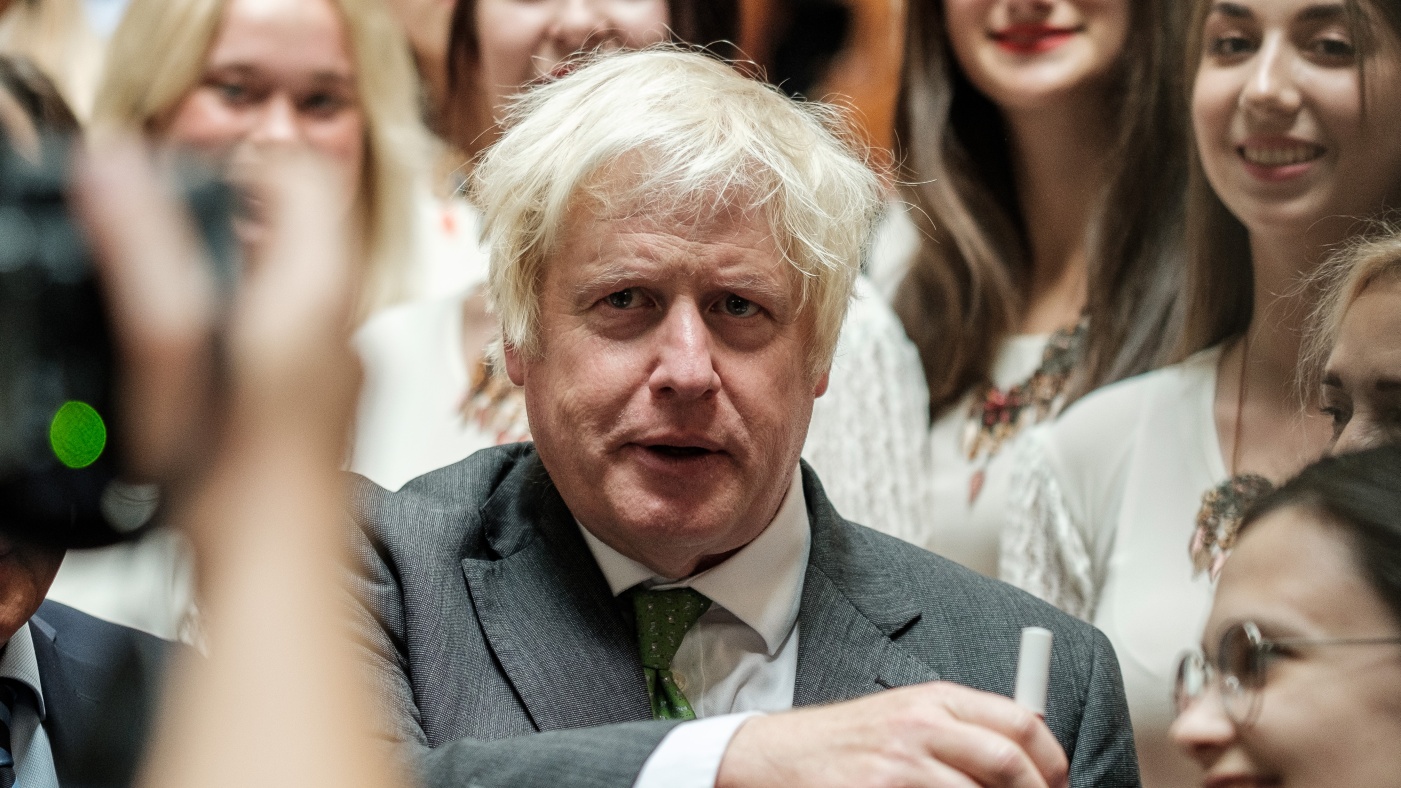Colin Powell's death is not proof of vaccine failure


A free daily email with the biggest news stories of the day – and the best features from TheWeek.com
You are now subscribed
Your newsletter sign-up was successful
The immediate news cycle following the death of former Secretary of State Colin Powell on Monday went about as one might expect.
First came the push notifications: Colin Powell, the first Black U.S. secretary of state, has died at 84 from COVID-19 complications, as it popped up in a banner during my morning yoga session. Then came the inevitable question of Powell's vaccination status: Indeed, his family confirmed, he'd been fully inoculated against the disease. Then the requisite debates about his legacy — the "too soon" scolds cheek-to-jowl with those muttering about how Henry Kissinger is somehow still alive — then, at last, the secondary politicizing of Powell's passing, the commentary not about his life and policy record but about his death itself. "The fact that Colin Powell died from a breakthrough COVID infection raises new concerns about how effective vaccines are long-term," mused Fox News' John Roberts, shortly before being shouted down by the Twitter hoard and deleting his tweet.
It's only natural for Powell's death to cause some alarm. Many early headlines omitted the important context that he was also fighting multiple myeloma, "a type of blood cancer that hurts the body's ability to fight infections," as pointed out by CNBC. Still, any whiff that the vaccines might not grant full invincibility against COVID-19 is inevitably seized by science-doubting skeptics. In short order, "fully vaccinated" — that newsworthy detail — was trending on Twitter.
The Week
Escape your echo chamber. Get the facts behind the news, plus analysis from multiple perspectives.

Sign up for The Week's Free Newsletters
From our morning news briefing to a weekly Good News Newsletter, get the best of The Week delivered directly to your inbox.
From our morning news briefing to a weekly Good News Newsletter, get the best of The Week delivered directly to your inbox.
Without political spin or irresponsible omission, however, Powell's death is a demonstration of the realistic case for vaccination. Vaccines were never meant to prevent anybody from ever dying from COVID-19, because that's simply not how vaccination works. Their purpose, which they amply accomplish, is to massively reduce the risk of death and serious illness. With around 190 million people in the U.S. fully vaccinated against COVID-19, we know of fewer than 7,178 breakthrough deaths. And while breakthrough cases are higher among the elderly, "incidence of deaths among the unvaccinated ... 80 and older" are still "more than four times higher" than among those vaccinated in that age group. Dying of COVID-19 while fully vaccinated is incredibly rare.
But, but, but! What are the odds of someone as high-profile as Colin Powell dying of a breakthrough COVID-19 case? Given his myeloma, it perhaps shouldn't be surprising.
But we should also look at the bigger picture, the one where 66 million Americans are eligible yet unvaccinated, where the national case and death rates look about the same now as they did in May of 2020. The vaccine campaign was never about saving any one life. It's a collective effort to save others' lives as well as our own — that's the "herd" in "herd immunity." Powell's death should be a wake-up call that the pandemic isn't over yet, that herd immunity is still unachieved.
A free daily email with the biggest news stories of the day – and the best features from TheWeek.com
Jeva Lange was the executive editor at TheWeek.com. She formerly served as The Week's deputy editor and culture critic. She is also a contributor to Screen Slate, and her writing has appeared in The New York Daily News, The Awl, Vice, and Gothamist, among other publications. Jeva lives in New York City. Follow her on Twitter.
-
 The 8 best TV shows of the 1960s
The 8 best TV shows of the 1960sThe standout shows of this decade take viewers from outer space to the Wild West
-
 Microdramas are booming
Microdramas are boomingUnder the radar Scroll to watch a whole movie
-
 The Olympic timekeepers keeping the Games on track
The Olympic timekeepers keeping the Games on trackUnder the Radar Swiss watchmaking giant Omega has been at the finish line of every Olympic Games for nearly 100 years
-
 Should we be worried about declining birth rates?
Should we be worried about declining birth rates?Talking Points Baby boom or bust
-
 Are men the problem with male contraception?
Are men the problem with male contraception?Talking Points Science could now offer contraceptive gels and pills for men, but questions remain over trials, and men's responsibility
-
 Should masks be here to stay?
Should masks be here to stay?Talking Points New York Governor Kathy Hochul proposed a mask ban. Here's why she wants one — and why it may not make sense.
-
 The bird flu fight is faltering
The bird flu fight is falteringTalking Points Are pandemic lessons going unheeded?
-
 OTC birth control arrives amid the battle over reproductive rights
OTC birth control arrives amid the battle over reproductive rightsTalking Points Opill will cost $19.99 a month. Democrats are pushing to make it cheaper.
-
 What Florida is — and isn't — doing to curb the biggest measles outbreak in the US
What Florida is — and isn't — doing to curb the biggest measles outbreak in the USTalking Points DeSantis appointee defies expert consensus to stop the spread
-
 Covid inquiry: the most important questions for Boris Johnson
Covid inquiry: the most important questions for Boris JohnsonTalking Point Former PM has faced weeks of heavy criticism from former colleagues at the public hearing
-
 No, it's not over
No, it's not overTalking Point New Omicron subvariants are headed our way
